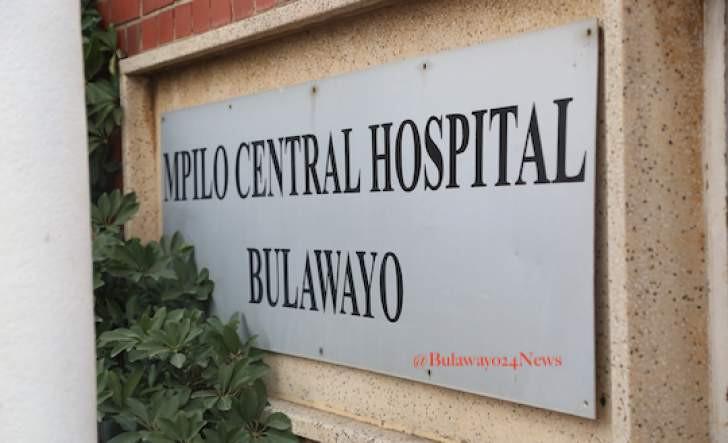News / National
Mpilo hospital opens unit to tackle drug abuse epidemic`
31 Dec 2024 at 13:33hrs | Views

In response to Zimbabwe's escalating drug and substance abuse crisis, Mpilo Central Hospital has established a dedicated Mental Health Clinic to provide specialised care for affected individuals. The clinic offers comprehensive mental health services, including therapy for substance abuse and support for individuals contemplating suicide.
The initiative comes amid growing concerns over the burden placed on Ingutsheni Central Hospital, the country's primary psychiatric facility, where substance abuse cases have surged in recent years. The government, recognising the severity of the crisis, has established a national taskforce to combat drug and substance abuse, focusing on harm reduction and improving access to treatment.
Sister Hango Ndebele, head of the new clinic, emphasised its unique approach to mental health care. "This unit is different from other hospital units as it provides holistic mental health services. We treat clients comprehensively, addressing both mental and physical health, and involve their families in the process," she said.
Comprehensive Care for a Widespread Crisis
The clinic serves both inpatients and outpatients, offering interventions such as problem-solving therapy, counselling, and screenings for conditions including HIV, TB, hepatitis, and kidney or liver issues. Sister Ndebele noted that many patients voluntarily seek treatment, while others arrive via family members or emergency services, often in a state of intoxication or with psychotic symptoms caused by substance use.
The crisis spans a wide demographic, affecting individuals aged 10 to 65, with the most significant impact on working-age adults between 35 and 45. The clinic also addresses para-suicide cases daily, providing counselling and psychotherapy. "For para-suicide, we see more women, often as a cry for attention, while men tend to use more lethal methods," Sister Ndebele explained.
Supporting Communities and Workplaces
Beyond its hospital-based services, the clinic actively engages in community outreach. In collaboration with Friendship Bench, it trains community health workers to identify individuals needing support and refer them for treatment. It also conducts mental health awareness workshops in schools and corporate organisations, aiming to reduce stigma and encourage early intervention.
Every quarter, the clinic holds community campaigns in areas such as Ngozi Mine, Cowdray Park, Nkulumane, Emganwini, and Nketa. These initiatives integrate mental health services with other health programmes, such as TB screening drives, to maximise their impact.
A National Effort Against Substance Abuse
The clinic is part of the inter-ministerial taskforce established by President Emmerson Mnangagwa to address the drug crisis. The taskforce focuses on seven pillars, with the Ministry of Health and Child Care leading efforts to reduce harm and provide treatment.
Sister Ndebele stressed the importance of harm reduction in the fight against substance abuse. "We don't simply abandon clients who struggle to stop using substances. We work with them to reduce their intake until they resolve to stop," she said.
The new clinic has already helped reduce congestion at Ingutsheni Central Hospital, providing a vital resource for individuals battling substance abuse while offering hope for a healthier future for affected communities.
The initiative comes amid growing concerns over the burden placed on Ingutsheni Central Hospital, the country's primary psychiatric facility, where substance abuse cases have surged in recent years. The government, recognising the severity of the crisis, has established a national taskforce to combat drug and substance abuse, focusing on harm reduction and improving access to treatment.
Sister Hango Ndebele, head of the new clinic, emphasised its unique approach to mental health care. "This unit is different from other hospital units as it provides holistic mental health services. We treat clients comprehensively, addressing both mental and physical health, and involve their families in the process," she said.
Comprehensive Care for a Widespread Crisis
The clinic serves both inpatients and outpatients, offering interventions such as problem-solving therapy, counselling, and screenings for conditions including HIV, TB, hepatitis, and kidney or liver issues. Sister Ndebele noted that many patients voluntarily seek treatment, while others arrive via family members or emergency services, often in a state of intoxication or with psychotic symptoms caused by substance use.
The crisis spans a wide demographic, affecting individuals aged 10 to 65, with the most significant impact on working-age adults between 35 and 45. The clinic also addresses para-suicide cases daily, providing counselling and psychotherapy. "For para-suicide, we see more women, often as a cry for attention, while men tend to use more lethal methods," Sister Ndebele explained.
Supporting Communities and Workplaces
Every quarter, the clinic holds community campaigns in areas such as Ngozi Mine, Cowdray Park, Nkulumane, Emganwini, and Nketa. These initiatives integrate mental health services with other health programmes, such as TB screening drives, to maximise their impact.
A National Effort Against Substance Abuse
The clinic is part of the inter-ministerial taskforce established by President Emmerson Mnangagwa to address the drug crisis. The taskforce focuses on seven pillars, with the Ministry of Health and Child Care leading efforts to reduce harm and provide treatment.
Sister Ndebele stressed the importance of harm reduction in the fight against substance abuse. "We don't simply abandon clients who struggle to stop using substances. We work with them to reduce their intake until they resolve to stop," she said.
The new clinic has already helped reduce congestion at Ingutsheni Central Hospital, providing a vital resource for individuals battling substance abuse while offering hope for a healthier future for affected communities.
Source - The Herald

























